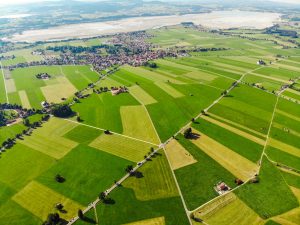Agricultural subsidies supported rather income of farmers than crop diversity
 Subsidies in total, as well as agro-environmental subsidies didn’t have a significant effect on the agricultural biodiversity. By using unique farm-level data, we show that subsidies supported the income of farmers rather than agricultural biodiversity.
Subsidies in total, as well as agro-environmental subsidies didn’t have a significant effect on the agricultural biodiversity. By using unique farm-level data, we show that subsidies supported the income of farmers rather than agricultural biodiversity.
SEEPIA researchers assessed the impact of agricultural subsidies on the agricultural biodiversity, i.e. land-use and crop diversity, on a sample of over 10,000 farmers in the Czech Republic between 2008 and 2020. The study investigated the impact of subsidies taken individually (especially agro-environmental subsidies) but also subsidies in total, except for investment subsidies.
The results showed that subsidies had a negligible positive impact on agricultural biodiversity. Between 2008 and 2020, there was an increase in agricultural biodiversitybut also a significant increase in the volume of subsidies.The main conclusion is that increases in subsidies, either total or taken individually, did not lead to a significant increase in agricultural biodiversity.
The study conclusions are interesting for further discussion regarding agricultural policy and its impact on crop diversity. The farmers’ income support was one of the main objectives of the Common Agricultural Policy for the 2014 – 2020 period. However, the new direction of the Common Agricultural Policy for the 2023 – 2027 period already requires “higher targets” with regard to the environment and redistributes more money to eco-schemes and to agri-environmental and climate measures. In addition, the new Common Agricultural Policy introduces stronger conditionality for these payments, but it is up to each Member State how these conditions will be implemented.
The study is available here.
Žáková Kroupová Z., Čechura L., Opatrný M., Hloušková Z., Mlezivová I. (2022): “Assessment of the Impact of Agricultural Support on Crop Diversity” IES Working Papers 32/2022.IES FSV.Charles University.

